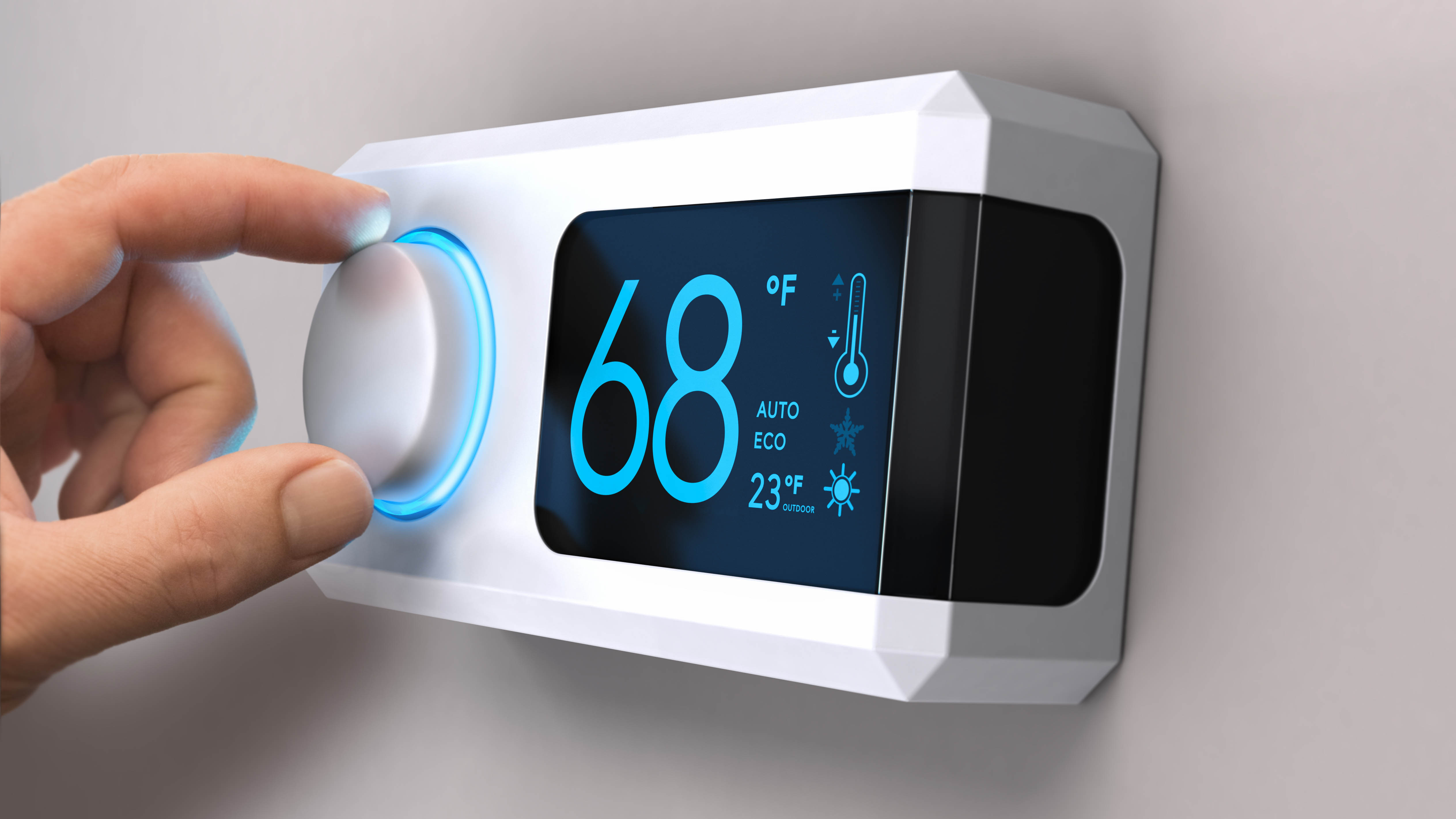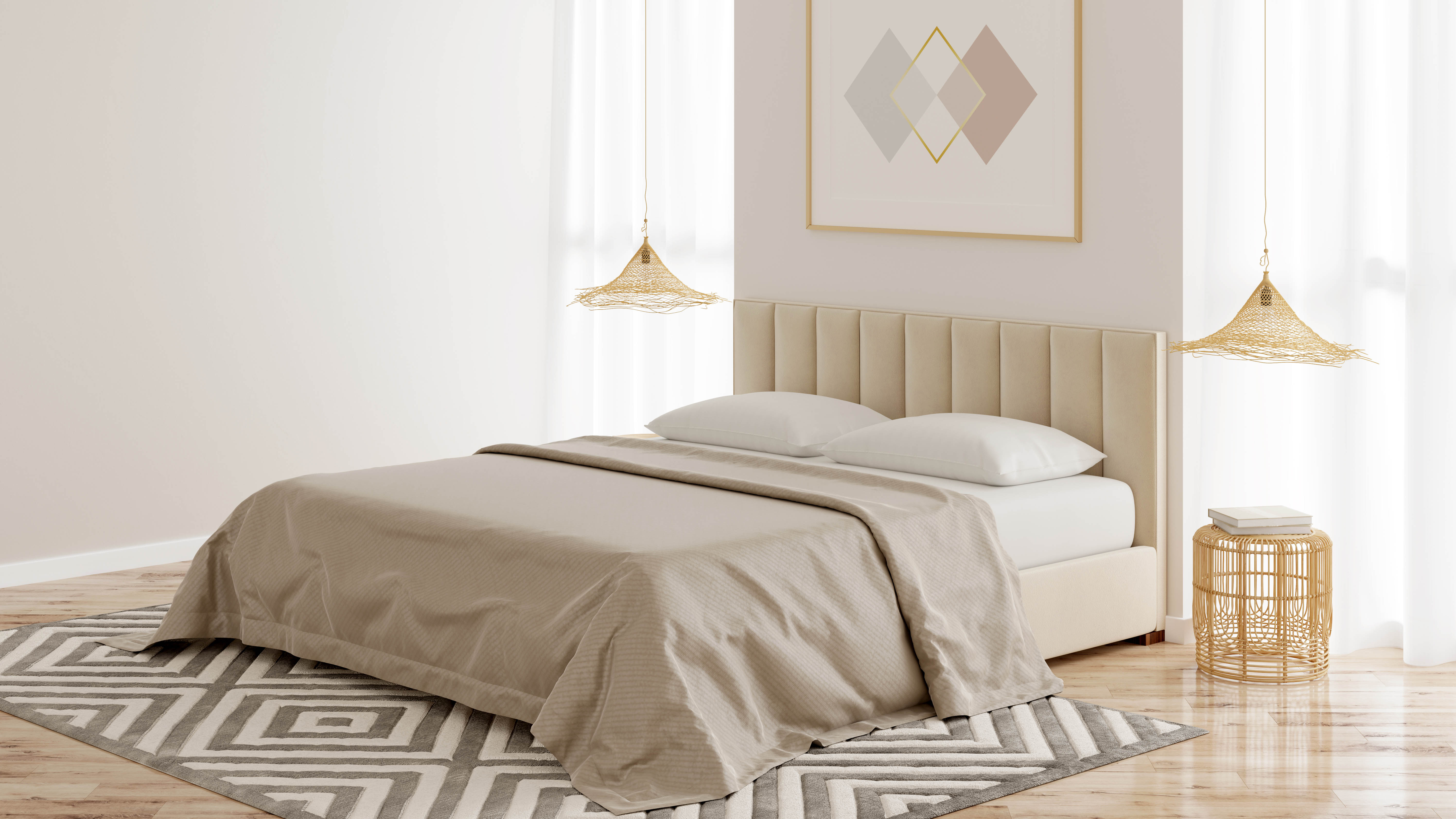Experts say sleeping with your bedroom door open helps you fall asleep faster — here's why
From better airflow to less allergy triggers, these are the benefits of sleeping with your bedroom door open

Bedrooms are private sanctuaries for retreating from the hustle and bustle of everyday life, so it’s common for many people to prefer to keep their bedroom door shut all night. However, have you considered that you might fall asleep faster and easier, and boost your chances of sleeping through the night, simply by keeping your bedroom door open instead?
While choosing the best mattress for your body, or cutting down on caffeine and other stimulants, can boost your chances of sleeping through the night, there's a much simpler hack to try. Rebecca Swain, a mattress advisor at Winston Beds, has revealed that keeping your bedroom door open at night can also help you fall asleep easier and faster.
Here’s what you need to know…
Why you should sleep with your bedroom door open
Sleeping with your bedroom door open can help adjust your bedroom’s climate as well as its overall vibe. “Not only does it help regulate room temperature so it’s easier to sleep in,” explains Swain, ”but it also removes the feeling of confinement when resting in smaller spaces.”
Here are seven benefits of sleeping with the door open:
1. It creates a better temperature for sleeping
While a recent study revealed that the best temperature for sleeping is between 20 and 25 °C (68 and 77 F), Swain believes an optimal bedroom temperature is between 17-19°C (62-66°F), as discussed when we last spoke about why you should stop sleeping with the heat up at night.
Either way, temperature plays a big role part in how fast you fall asleep and when improving your chances of sleeping through the night. Temperature control in your bedroom also helps prevent overheating and night sweats, which is essential if you don't have a cooling mattress. It’s also much easier to keep tabs on temperature if you have a smart thermostat too, taking all of the guesswork out of it for you.
Sign up to get the BEST of Tom's Guide direct to your inbox.
Get instant access to breaking news, the hottest reviews, great deals and helpful tips.

An open door helps increase airflow and regulate a bedroom’s temperature. If your door needs to be closed, consider opening a window instead – even in winter and even if it's just a crack. “Waking up from overheating is a common problem that can cause a disrupted night's sleep,” says Swain. “An instant fix is to open the door all night so temperatures can cool down to allow for a more comfortable night.”
2. It reduces your allergy triggers
A poorly ventilated bedroom is a hotbed for dust and mold, which in turn can aggravate allergies and cause you to spend your nights coughing and sneezing instead of sleeping.
“A dusty room can trigger allergies and make it difficult to get a good night’s sleep,” explains Swain. “Having the door open with air circulating freely will help reduce the amount that’s been accumulated.”
Allowing fresh air to flow into your bedroom can also help to get rid of foul odours that are trapped in a room, along with any pet dander floating around.
3. It promotes a better flow of energy
For some people, a closed bedroom door can create feelings of being trapped or confined. In small bedrooms, an open door helps natural light from other areas of the home to enter. This can help make the space feel wider, fresher and more comfortable to sleep in. That in turn will help you relax faster, so you’ll fall asleep faster too.
The benefits of an open door can be accentuated with bedroom Feng Shui (the rearrangement of furniture to create a positive impact on wellbeing). Claire Davies, Sleep Editor and Certified Sleep Science Coach at Tom’s Guide, says you should “Place your bed diagonally to your bedroom door in the ‘commanding position’. It’s fine if you can see your door from your bed, but your feet should not be pointing directly at the door.

“Never position your bed directly facing the door,” continues Davies. “This is known as the ‘coffin position’ and you’ll feel vulnerable and on edge all night long, leading to very light and broken sleep.”
What should you do if you need to close your bedroom door at night?
Sometimes, it’s impossible to get a good night’s sleep with your bedroom door open, especially if you live in a busy household where everyone operates on different sleep schedules.
If this is the case for you, you can still sleep and breathe easily without your door wide open. Firstly, open a window for fresh air and use a humidifier to control mold growth if your bedroom is prone to dampness.
If your room is trapping foul odours, consider using a room spray or spritz with a relaxing scent such as lavender or eucalyptus to both ais sleep and mask odours that might be waking you up.
More tips to make your bedroom better-suited to sleep
Along with opening a window or door, there are other ways to optimize your bedroom for sleep. Creating the best sleep environment often involves thinking about the things that are keeping you awake or preventing you from relaxing, so you should consider making the following changes to create the ideal sleep sanctuary:
- Ditch electronics and screens, such as TVs, laptops and phones as the screens’ blue light can disturb your circadian rhythm and make it harder to fall asleep.
- Remove all clutter so it doesn’t distract you from resting
- Use earplugs or a white noise machine to block external noise, especially if you sleep with your door or window open
- Use blackout shades and drapes to dampen light pollution

Frances Daniels is a PPA-accredited journalist and Sleep Staff Writer at Tom's Guide with an MA in Magazine Journalism from Cardiff University. Her role includes covering mattress and sleep news and writing sleep product reviews and buyer's guides, including our Best Hybrid Mattress 2025 guide. She is hugely interested in the relationship between good sleep and overall health, interviewing a wide array of mattress and sleep experts to create well-informed articles about important topics such as nutrition, sleep disorders (from sleep apnea to night terrors), lucid dreaming, sleep hygiene, and mattress care. She is also our specialist on mattress toppers — producing mattress topper reviews and taking care of our Best Mattress Toppers 2025 guide — and takes the lead on all content related to fiberglass-free mattresses for a clean, non-toxic sleep. Outside of Tom's Guide, she has written for Ideal Home, Homes & Gardens, and Marie Claire.
